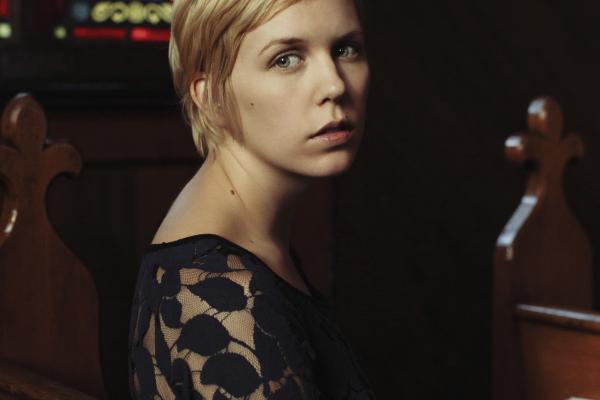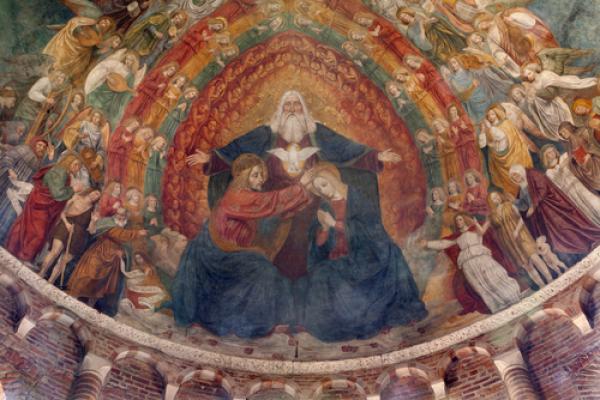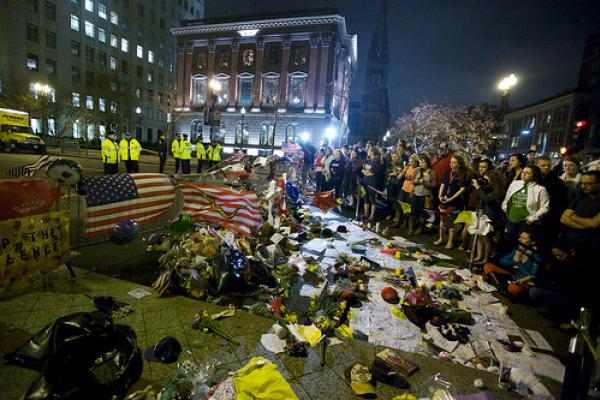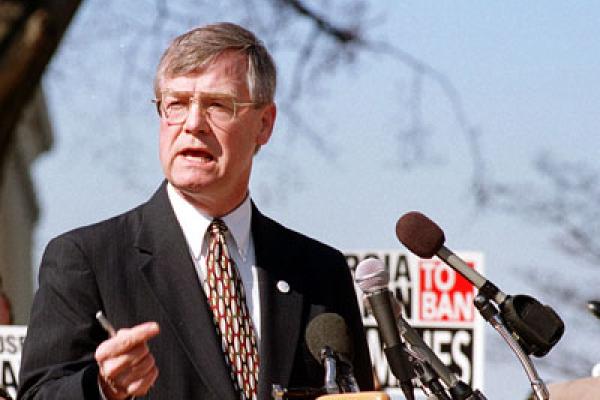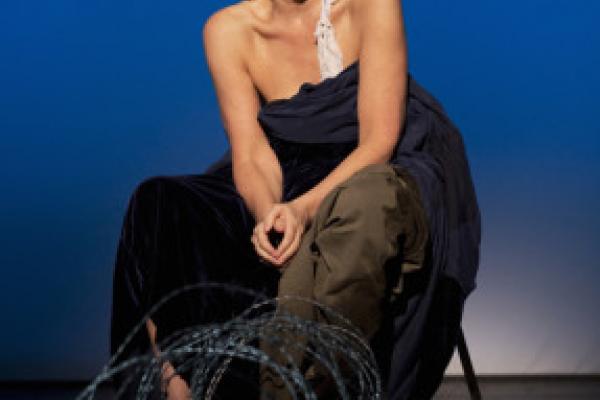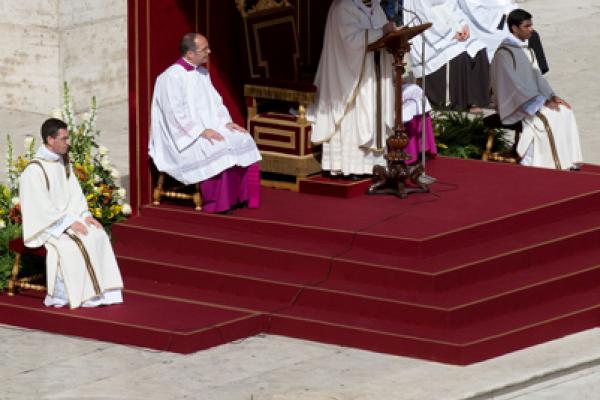A while back I had an opportunity to sit down and talk with up-and-coming singer-songwriter Nataly Dawn about faith and songwriting. Dawn grew up in France, went to Stanford for undergrad, and made it big on YouTube with a duo called Pomplamoose before signing with Nonesuch records and starting her solo work.
This interview was edited for length and content.
Nataly: I have to warn you, I’m in a little bit of a food coma; I just made a really big brunch. I had probably five pancakes.
Brandon: Wow. Impressive. That’s awesome.
Have you ever heard someone described as, “So heavenly minded, he was no earthly good?” This phrase suggests one danger of interpreting the book of Revelation. Sadly, when it comes to considering the natural world and Revelation, heavenly mindedness often undermines care for our environment. Some Christians have a tendency to think, “Well, if I’m off to heaven, I shouldn’t care much about this silly earth of ours. It’s just a temporary home, after all.”
In fact, Revelation suggests the opposite: the earth isn’t truly “left behind,” but renewed, becoming the very dwelling place of God. Revelation 21 calls people to be, well, “earthly good,” caring for creation as we prepare for God to come home.
"God doesn't just hate what you do. God hates who you are." — A Well-Known Contemporary Preacher
What this pastor says above, as well as much of what he says in the sermon from which this line is taken, comes from reading the Bible as if every sentence in it can and should be read as bearing the same weight as all others when we answer the question: "Who is God?"
When we read the Bible with the first Christians we begin to understand that the way they read these texts is not the way an uber-rationalist modern reads them.
Since Jesus himself was the one who taught the apostles to read the Old Testament, the way the churches they founded read the Bible is important for us, too.
God never was only the words he utters, or the ones we utter about God — just like we are never the sum total of everything we have spoken or what has been spoken of us. There is so much more to the mystery of any person than mere words; how much more so the mystery of the divine persons.
Editor’s Note: Jim Wallis’ latest book On God’s Side: What Religion Forgets and Politics Hasn’t Learned About Serving the Common Good is sparking a national conversation on what it means to come together on issues that traditionally divide the nation. Bloggers Adam Ericksen and Tripp Hudgins are having that conversation here, on the God’s Politics blog. Follow along, and join the discussion in the comments section.
What if we surprised our enemies?
I mean, really surprised them. What if we surprised them with something totally unexpected? When our personal, political, and national enemies strike us, they expect us to strike back. That’s been the human script since the foundations of human culture. We mimic violence blow for blow. Only each side wants to be the side who delivers the final blow.
What if we surprised our enemies and changed the script?
The Rev. Bob Edgar, a Democratic congressman and United Methodist minister who went on to lead the National Council of Churches through a painful series of restructuring, died suddenly Tuesday at age 69.
The man religious leaders remembered as a “bridge builder,” suffered a heart attack and had been exercising on a treadmill in his home in Burke, Va., said Mary Boyle, spokeswoman for Common Cause. Edgar became president of the Washington-based nonpartisan advocacy group in 2007 after serving two terms as the general secretary of the NCC.
“He was a man of great capacity who understood the importance of cross-cultural and religious dynamics,” said the Rev. Carroll Baltimore, president of the Progressive National Baptist Convention, who recalled traveling in a Common Cause interfaith delegation Edgar led to Vietnam in 2010 to learn about continuing effects of Agent Orange.
Baltimore said Edgar brought together Christians, Buddhists, Confucians, and political leaders.
“He was able to link all of those pieces together and just remind us that we’re all made from the same cloth,” he said.
How far can one go in retelling a Bible story, adding things that are not in the original? In The Testament of Mary, Colm Toibin goes a long way.
His 2012 book is now a Broadway play presenting a view of the mother of Jesus so different from pious tradition that it angers some Christians, creating a “new,” intellectually and spiritually challenging Virgin Mary.
Yet in the end, Toibin’s searingly human Mary may be ultimately more accessible than the Mary of porcelain perfection set high on a pedestal.
The Irish writer, who has written about his strong Catholic childhood, imagines Mary 30 years after the crucifixion of her son. She lives as a virtual prisoner of two of Jesus’ disciples, still mourning her son’s death, bitter at what has happened since, and seeking consolation from pagan idols, which make more sense to her than what happened to Jesus.
In the midst of our celebration of Earth Day, government agencies continued the debate over the Keystone XL Pipeline, which would transport oil from Canada’s tar sands across the United States into the gulf coast of Texas to be refined and shipped elsewhere. The State Department, tasked with reviewing the pipeline’s environmental impact, gave it a tentative pass a month and a half ago.
Activists across the country sprang into action to oppose the pipeline, citing its contribution to climate change and risk of oil spills. Supporters of the pipeline shot back, denying the climate impact of the pipeline and claiming that the oil would be produced whether or not the Keystone project moved forward.
The Environmental Protection Agency responded yesterday, calling into question the State Department’s findings and echoing the concerns of environmental activists everywhere: the Keystone Pipeline would be greatly exacerbate climate change.
When you’re the pope, few things matter as much as what you say and, especially, where you say it.
From the pulpit of St. Peter’s Basilica or an outdoor altar erected in St. Peter’s Square, popes can command global media attention. Pope Francis, however, has settled in with a smaller congregation for his homilies that’s more in keeping with his low-key style.
Every day at 7 a.m., Francis celebrates Mass in the chapel of the Casa Santa Marta, the Vatican’s hotel-style guesthouse he has chosen to call home instead of the luxurious papal apartments. His brief, colorful homilies are delivered to small groups of Vatican workers, from policemen to doctors and bank employees.
